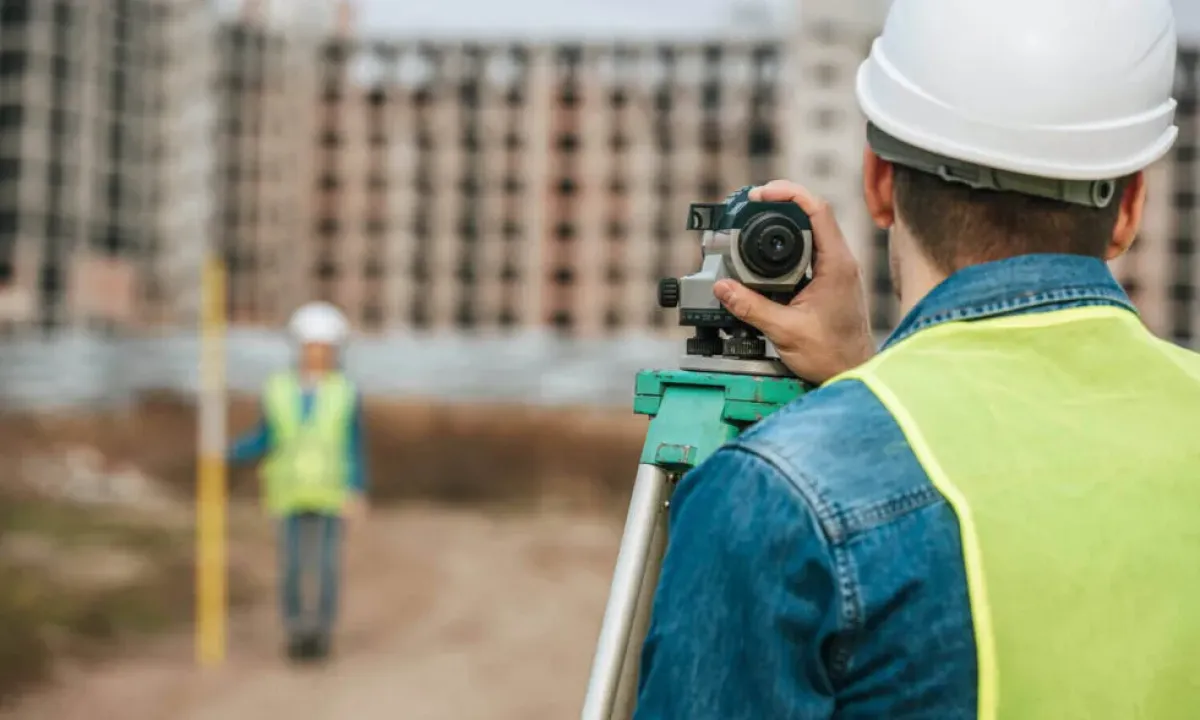
What are three main duties of a Land Surveyor?
If you are purchasing a property and intend to develop or significantly renovate it, you may require the services of a land surveyor. These professionals play a vital role in the construction industry – they are responsible for measuring, analysing, and mapping out land to help guide development projects.
Land surveyors in Melbourne are expected to fulfill these duties to ensure that construction projects comply with safety, legal, and environmental standards. Additionally, surveyors are required to have a license to practice. This license is issued by the Surveyors Registration Board of Victoria, which ensures that surveyors meet the necessary qualifications and standards. As part of their licensing requirements, land surveyors must adhere to a strict code of ethics and professional conduct.
From residential to infrastructure projects, land surveyors provide data that is critical to each development. Without the information they provide, legal, social, and environmental problems may arise. If you are still wondering what else these highly trained professionals do, here are three primary duties of a land surveyor in Melbourne that you need to know.
1. Conducting surveys
The primary duty of a land surveyor is to conduct surveys of the land you wish to develop. Surveys are essential for gathering accurate data about the land, which can be used to create detailed maps and plans for the development projects of clients and government agencies.
Surveyors use a wide range of equipment to measure and analyse different aspects of the land, including its shape, size, elevation, and topography. They do this to map a property’s boundaries, which can help identify any encroachments or easements. This information is essential for obtaining building permits, planning construction projects, and avoiding legal disputes with neighbours.
Additionally, land surveyors conduct surveys to help identify potential hazards on the property, such as environmental risks, flood zones, and unstable terrain. They also offer expert advice on land use, zoning regulations, and other legal requirements.
Land surveyors follow strict guidelines and adhere to specific protocols when conducting surveys. They must ensure that they use the correct equipment, that their measurements are accurate, and that they collect data in a systematic and organised manner. They also need to be aware of any potential hazards or obstacles that could impact the accuracy of their measurements, such as trees, buildings, or uneven terrain.
2. Preparing plans and reports
Another critical duty of a land surveyor is preparing plans and reports. Once the survey is complete, surveyors use Geographic Information Systems (GIS) technology to present the data they have collected visually in the form of maps, plans, and reports that provide information on the land’s characteristics.
Using GIS data, surveyors can overlay aerial or satellite images and, for example, create digital maps to be used to advise the developers on where to plan homes, roads, and other relevant developments. These plans and reports are essential for guiding construction projects and ensuring that they comply with legal, safety, and environmental standards.
Land surveyors must ensure that their plans and reports are accurate and up to date. They use precise measurements and data to create detailed and comprehensive plans that provide a clear picture of the land. They are also familiar with local laws and regulations; their plans must comply with these standards.
In addition to preparing plans and reports, land surveyors may also be required to provide expert testimony in court cases or other legal proceedings. These usually happen in situations where they may be called upon to provide evidence and testimony related to their surveys and plans. They must be able to present this information clearly and concisely in court.
3. Consulting with clients and other professionals
Land surveyors are also responsible for consulting with clients and other industry-related or non-industry-related professionals. Surveyors work closely with architects, engineers, and construction professionals to ensure that their surveys and plans are accurate and that they meet the necessary standards.
Because of this, surveyors must have excellent communication skills, as they need to be able to explain their surveys and plans to clients and other non-industry-related professionals who may not have a background in surveying. Their ability to translate technical information into understandable language and provide guidance and advice to help guide clients and government agencies significantly contributes to a development project.
Engage Terrain Consulting Group’s Land Surveyors for your next project
Land surveyors are an indispensable resource for anyone who owns, plans to buy, develops, or manages a piece of land. By hiring a qualified land surveyor, you can ensure that you have accurate information about your property, avoid potential legal and financial issues, and make informed decisions about its use and development.
At Terrain Consulting Group, our land surveyors provide clients with high-quality expert guidance on their property development projects. Backed with almost 20 years of experience in the surveying and town planning industry, our surveyors know the Victorian legislation inside out and can offer a well-informed and streamlined service from start to finish. Get in touch with us to see how we can help you.